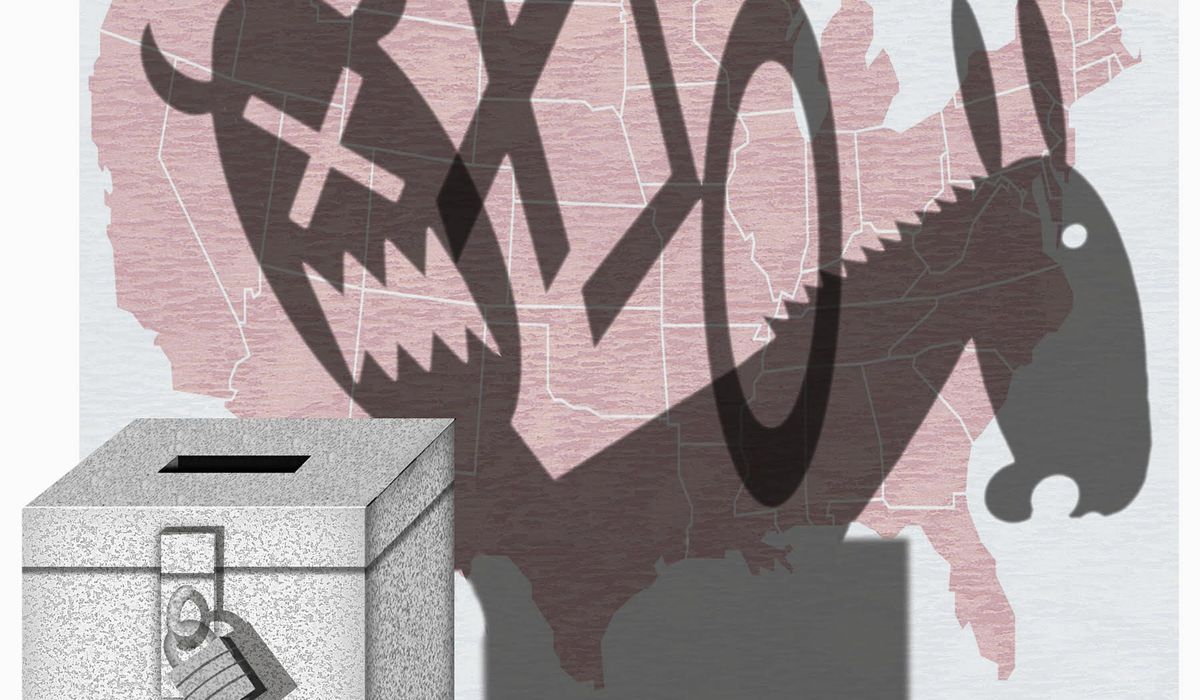
OPINION:
How you assess the results of Tuesday’s elections depends in some measure on your personal biases.
If you are a progressive, you think the Democratic Party needs to wander even further and more emphatically to the left. If you are a moderate Democrat, you believe the election results suggest a pause in the leftward stampede might be in order.
If you’re a Republican, you think – correctly — that the results in Virginia, New Jersey, New York, Pennsylvania, Texas, Seattle and Minneapolis all tell pretty much the same story: It’s time for the Democrats to reel in their more ridiculous ideas.
However, there are a set of more universal conclusions worth noting about the results.
First, and most importantly, the elections were the ratification of the wisdom of the framers of the Constitution. A system in which there are three levels of government spread across 50 states means that voters almost always have opportunities to speak to their elected officials through the mechanism of voting.
The structure ensures that voters can restrain the more immoderate impulses of their elected officials. It also ensures that no one party can generate too much momentum from a single electoral victory.
If you think back to January, Team Biden and the progressives wanted to accomplish many things. Federalize elections. Grant statehood to the District of Columbia, Puerto Rico and Berkeley. Kill the filibuster. Pack the courts. Help their friends and hurt their political adversaries by passing the PRO Act and the Equality Act.
None of that is likely to happen because the system requires an overwhelming mandate in a single election or winning multiple elections across years to make such sweeping changes.
The second conclusion to be drawn from Tuesday’s results is that something beats nothing. Voters almost always prefer candidates in favor of something to those who simply want the office because they have stood in line the longest or feel entitled to it. If you think about Virginia, especially, former Gov. Terry McAuliffe never articulated what he would do as governor (except hand the keys over to the teachers unions).
Unfortunately for Mr. McAuliffe, it turns out that not liking former President Trump is not a sufficient reason for voters to make you governor of Virginia.
The corollary to this is that grievance politics is losing politics. The candidates who won on Tuesday were victorious because they managed to articulate positive messages about parental involvement, policing, taxes, whatever. No one won by complaining. It’s a lesson for those still brooding over the 2020 elections or Jan. 6.
The third conclusion from Tuesday’s elections is that progressive ideals sometimes have trouble meeting current realities. Mr. McAuliffe lost in large measure because he spent six weeks defending the progressive notion that the state owns your children. Not surprisingly, parents rejected both the message and the messenger.
In Minneapolis, progressives have been trying to sell the voters for 18 months that preserving law and order is a problem. Again, not surprisingly, voters rejected that.
There are other examples, but you get the idea. A system built on private property, free exchange of goods and services, the rule of law, and God-given rights will reject “progressive” ideas because those ideas are intentionally contrary to the nation’s foundations.
Finally, the inescapable conclusion from Tuesday is that the Democrats are talking past the American people. Voters care about inflation, about taxes, about energy prices, about COVID-19, about crises in the supply chain, in semiconductors, and on the southern border. Despite the endless noise from Congress and President Biden, no voters expect reconciliation or anything being talked about in Washington to solve any of those problems.
More disconcertingly to voters, no one in the administration seems to have any idea about how to solve these problems or, worse, any interest in solving these problems. That is, in part, why the elections everywhere went against the Democrats on Tuesday.
• Michael McKenna, a columnist for The Washington Times, is the president of MWR Strategies. He was most recently a deputy assistant to the president and deputy director of the Office of Legislative Affairs at the White House.








